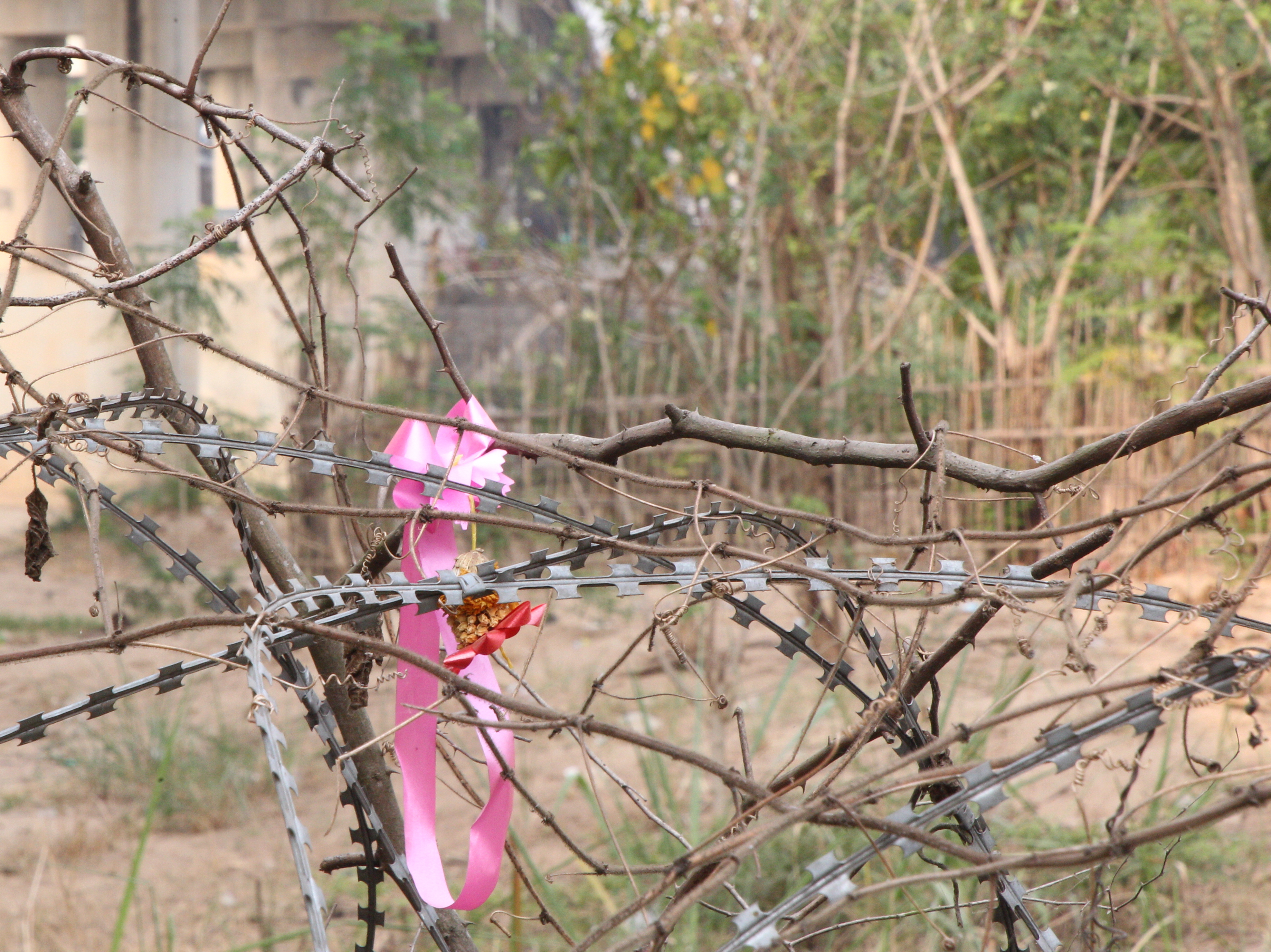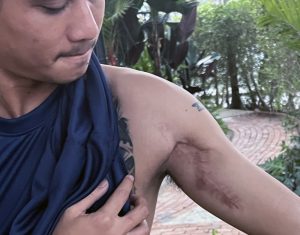The town of Mae Sot in northwest Thailand is bustling. A frontier town with a civil war on its doorstep, the population has swelled with Burmese and ethnic rebels who spend most of their time across the border battling it out against the military junta.
Bamar, Karen, Karenni, and Mon – both Buddhists and Christians – are common. Some have fled conscription, others are on R&R and a few are fragile after a civil war that began when Senior Gen. Min Aung Hlaing ousted Myanmar’s elected government three years ago.
Mae Sot’s official population is 52,000 but according to a German academic, who made Mae Sot his PhD subject in town planning, that has swelled to about a quarter of a million with the internally displaced and those fleeing conscription now adding to those numbers.
Some sneak across the borders, others hold passports and visas or a Pink ID Card that allows them to stay in Thailand but with limited rights, including a 10 p.m. curfew. In bars, tea houses, farming communes, and safe houses, the buzzword is “revolution.”
Among them is a well-known rap star, who is devoted to his squad and divides his time between recording missions, and looking after the battle-scarred. He won’t be identified because of Phyo Zeya Thaw, a friend and lawmaker who was executed last year.
“This is serious I thought,” he said from a safe house on the outskirts of town. “Then another comrade, a videographer, was training with a drone attached with grenades. One accidentally dropped, took off his leg, a chunk out of his head and killed his brother.”
“He’s tried to commit suicide three times. It’s a side of war that people don’t see. I stopped drinking and smoking ganja. Defeating the military is all that matters and it will happen because this is a war the junta can not win. We are united,” he said, through a translator.
He shares his safe house with about 10 troops from the People’s Defense Force (PDF), the armed wing of the opposition National Unity Government (NUG), which has fought the junta since the overthrow of Aung San Suu Kyi’s government in early 2021.
Outside, dogs bark while the distant, occasional sound of artillery exchanges and aerial bombardments serve as a routine reminder of a conflict just a few kilometers away.
The rooms are filled with electric guitars and the walls are covered by revolutionary art and graffiti; Che Guevara, Bob Marley, and AC/DC adorn the walls as young men and women file in and take turns on a shared mattress for some much-needed sleep.
Among them is a gay couple, women in their 20s. One has a physics degree the other is studying Southeast Asian politics through a university course sponsored by the NUG and they watch each other’s backs.

A pink ribbon stuck on the razor wire that marks the border dividing Thailand and war-torn Myanmar in Mae Sot, Thailand. Photo by Luke Hunt
“This revolution is different. About one in three PDFs are women,” said one. “We were taught how to shoot but I won’t carry a gun anymore. Guns frighten the villagers. They panic and run at the first sound of a bullet and that’s upsetting and makes it difficult to work.”
That work includes delivering food, medicine, hand-me-down clothing, and school books to villages and camps for the internally displaced people across the Moei River in Myanmar, when the border guards are absent.
“If you carry a gun you might have to use it and that gets in the way,” she rationalizes. “The frontline is the border, once you cross the fighting can be anywhere and everywhere,” she added while introducing me to a group of commandos in a local tea house.
One is a sniper debating with another commando his weapon of choice; the American-made Ruger or Mossberg, which is also NATO-approved. Over a cup of tea, he settles on the Ruger.
“It’s hard work. We can march 30 kilometers and carry a 30-kilo kit a day. We once had a U.S. military advisor attached to our squad. It was all uphill and a nine-hour march. When we got to the top he asked ‘how soon till the helicopter arrives’?
“He wasn’t happy when told we were walking out,” he said.
Then there are those fleeing conscription. Late last week, the junta began sending out conscription notices – enforcing a law that had remained dormant since 2010 – addressed to men aged between 18 to 35 and women of 18 to 27 years of age.
One squad leader, whose leg was amputated after he stepped on a landmine, said that the conscription order indicated the junta was losing and this was unexpectedly bolstering the ranks of the PDF and the ethnic armies. Safe houses are popular with those fleeing conscription.
“I don’t want to hurt anyone. I don’t want to shoot anyone,” said a 19-year-old man. “I tried to avoid the war but if the junta wants to conscript me then I have no choice and I will fight with the PDF. The junta has bombed our villages, our schools, our homes so now I will fight them.”

































